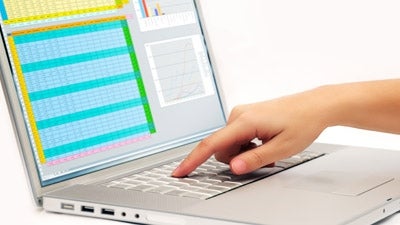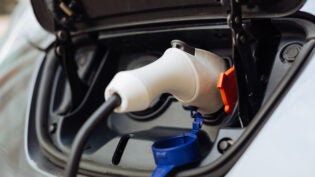
Small business bookkeeping can be very confusing. Vickey Boatright makes it easy to understand.
She has over 13 years experience as a fund accountant for a nonprofit organization and a small business owner. She is also the author of two online businesses: www.basicaccountinghelp.com and www.freechurchaccounting.com.
Setting up a good accounting system is the foundation for your new small business.
Having a good accounting system in place is essential in order for your business to grow to its fullest potential. Here is your blueprint for setting it up:
#1: Consult with a Bookkeeper or an Accountant.
Consult with an accountant or bookkeeper to help you set up your accounting system up front. Make sure your bookkeeper and accountant knows these three things about your small business:
- Will you have inventory or do you have a service business?
- Will you be working from home or will you rent space?
- Are you a solopreneur or do you have partners?
He or she can prevent you from making countless small business bookkeeping mistakes. Paying an accountant or a bookkeeper to set up an accounting system correctly upfront is a cheap investment compared to what it will cost you to fix your accounting problems later on.
You can save money by hiring a great bookkeeper to set up your books. Then use the accountant to verify the bookkeeper’s work. You’ll get the job done right the first time and it will cost you less overall.
#2: Choose An Accounting Method: Cash Basis or Accrual.
One of the first steps in setting up your books is deciding which accounting method you are going to use in your business. Whatever method you choose, apply that method consistently throughout your business.
Your accountant will know if the cash or accrual basis is best for your small business, but here are the basics you need to know to help you make the final decision.
A) Cash Method (or Cash Basis): Use the cash method if you do not have to keep track of inventory. Under the cash method, you do not record your income until cash (or check) is actually received from your customer or affiliate. Expenses are not recorded until you actually pay for them.
Keep in mind, with the cash method, your timing will always be a little “off.” You may complete a project in January but not get paid for it until February. Because with the cash method, you book the revenue (income) in February when you receive the check, not when you invoice the client at the end of the project.
The business does not count income until the check or cash arrives. It’s the same with expenses. The business does not count expenses until they’re actually paid.
B) Accrual Method (or Accrual Basis): Under the accrual basis accounting method, income is counted and recorded when the sale occurs (not when it’s paid for). Expenses are recorded when you receive the goods or services (not when you pay for them).
The accrual method usually provides a more accurate picture of what is actually going on in the business. It accounts for the time lags between when income is earned and received or when expenses are incurred and paid. It gives you an more accurate view of your cash flow.
#3: Decide Which Bookkeeping System To Use.
After you have chosen your accounting method, you will want to decide which bookkeeping system will be right for you. All small business bookkeeping software can handle either single or double entry bookkeeping. You need to choose which one will work the best for your business.
A) Single entry bookkeeping is similar to your check register. You just add the money coming in and subtract the money going out and keep a running balance.
B) Double entry bookkeeping tracks your income and expenses and your assets and liabilities. Assets and liabilities are captured on the balance sheet.
In this system, at least two entries are made with every financial transaction recorded: a debit and credit. Each transaction must balance each other.
To decide which system would be best for your business, consider the type of business you own. Your bookkeeper or accountant can guide you.
A small sole proprietorship or home-based business may not require a double entry system for recording business transactions.
However, if you have quite a few accounts receivables (money owed to your business by your customers) or accounts payables (money owed by your business), you may want to consider using a double entry bookkeeping system.
#4: Open a Separate Bank Account.
It is incredibly important that you open a separate bank account for your small business. Do not pay your personal expenses out of this account. If you need money from your business for personal expenses write yourself a check or transfer the money into your personal bank account.
The IRS does not look kindly on businesses that pay personal expenses directly out of the business.
If you do write a check from your personal account and deposit it into the business account, that becomes a personal loan to the business. It shows up on your balance sheet as owner’s equity.
Once you have taken the time and energy to set up your accounting system, use it! Keep and file all business receipts. Choose at least one day each month for your bookkeeper to enter all your business transactions into your accounting system.
Also make sure you or your Bookkeeper reconciles your accounting system with your bank statement every month. This will catch any missed transactions and keep you in balance.
Last of all, review your cash flow statement once a week and profit and loss statement at least once a month. Figure out what is working for you and what is not. Then use this information to build and grow your business.
Thank you, Vickey!
In your corner as always,
This article was originally published by Best Small Biz Help
Published: September 13, 2013
4053 Views
4053 Views











